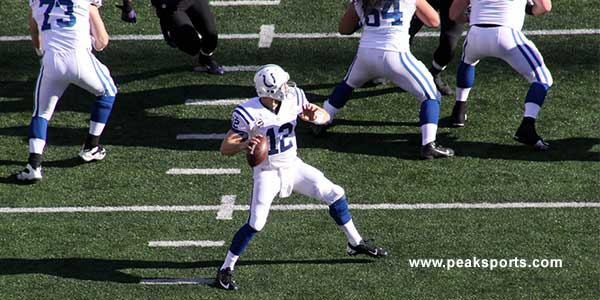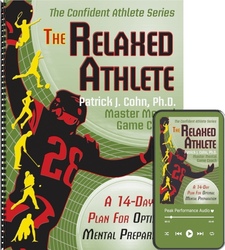
Are you Losing the Fun in Sports?
“I QUIT!”
This is a common thought many young athletes have when contemplating if they want to continue in competitive sports due to no longer having fun.
Unfortunately, according to a study conducted by the National Alliance of Youth Sports, approximately, 70 percent of young athletes quit their sport by the age of 13.
Why do young athletes quit competing in sports at an early age?
There are 4 main reasons that cause young athletes to quit participating in youth sports.
- Too much time – Young athletes often complain that competitive sports require too much of their time. Practices are long… Too many competitions… Too much traveling… Not enough free time… and little time for hanging out with friends. When you feel your sport has taken on a life of its own, it can make training sessions and practices feel like absolute drudgery.
- Too much pressure – The pressure to produce is overwhelming for many young athletes. Many of these athletes feel they need to please their coaches, parents and teammates. The fear of letting down others can cause young athletes to try to set unrealistically high expectations or feel they need to be perfect in all they do as an athlete. The weight some young athletes feel is often a load too heavy to bear.
- Too many nagging injuries – Missing a lot of time due to injuries and watching your teammates improve and achieve can feel frustrating. Rehabbing from injury, experiencing the pain from being injured and having to recondition after injury can generate a host of negative emotions.
- Not enough fun – This, ultimately, is the main reason young athletes want to quit competing. When the fun is gone, athletes are left feeling “burned out.” Something you once enjoyed feels like such a chore that zaps motivation and any passion you once had for your sport.
A recent example of walking away from sport while in his prime is former NFL quarterback Andrew Luck… Luck was drafted by the Indianapolis Colts with the first overall pick in the 2012 NFL Draft.
Luck shockingly retired at the young age of 29 years-old despite being one of the top quarterbacks in the game.
Luck achieved a lot in his seven year career including: four Pro Bowls and the 2018 NFL Comeback Player of the Year.
Unfortunately, Luck experienced a lot of adversity throughout his career, too.
Luck had shoulder surgery that caused him to miss the entire 2017 season and, most recently, ankle and calf injuries.
These injuries wore Luck down both physically and mentally and were the impetus for Luck’s retirement from football.
LUCK: “It’s been unrelenting. I felt stuck in it. The only way I see out is to no longer play football. It’s taken my joy of this game away.”
If your sport is fun, you can endure a lot more adversity while staying motivated to improve.
‘I haven’t been able to live the life I want to live,’ he said, referring to both the pain of his injuries and the degree of dedication required to recover from them. ‘It’s taken the joy out of this game.’
He had been the NFL’s No. 1 overall pick, then its leader in passing touchdowns, then its comeback player of the year.
Keeping Sports Fun:
First of all, deciding it is time to move on from a sport is not failure. A time comes when every athlete makes the decision to move on.
If you still have a passion to compete, write out a list of what you like about your sport, why you started, and what’s fun about competition.
Remind yourself to make having fun a goal. Let go of the expectations to be great.
Perfectionists both love and hate their sport at times. When they fail to live up to expectations, they become frustrated and lose the fun.
Is your goal to have fun and the love of competition stronger than the adversity and pain your feel at times?
Related Sports Psychology Articles
- Why Athletes Quit Sports: Good and Not Good Reasons
- Parents: When Athletes Want to Quit Sports
- Parents: Helping Young Athlete Who Wants to Quit
*Subscribe to The Sports Psychology Podcast on iTunes
*Subscribe to The Sports Psychology Podcast on Spotify
Download a free sports psychology report to improve your mental game!
Learn more about our one-on-one mental game coaching.
The Relaxed Athlete

The ability to relax and play your game under pressure is what separates the winner from the loser in any competition. Champion athletes train hard in practice, are motivated for the right reasons, and are able to raise their game in crunch-time with two minutes remaining in the game..
A relaxed and confident performance begins in the mind! When you are mentally prepared to compete, you can have an optimal level of intensity AND poise!
The Relaxed Athlete program is ideal for any athlete that wants to overcome pregame anxiety, worry, or excess tension and learn to perform with poise. It’s also ideal for any coach or parent who wants to teach athletes to perform with poise and relaxation in competition.
